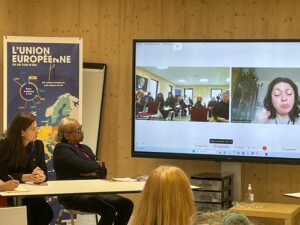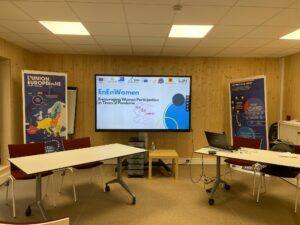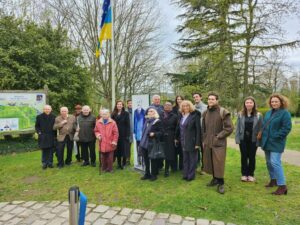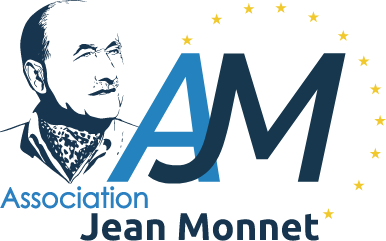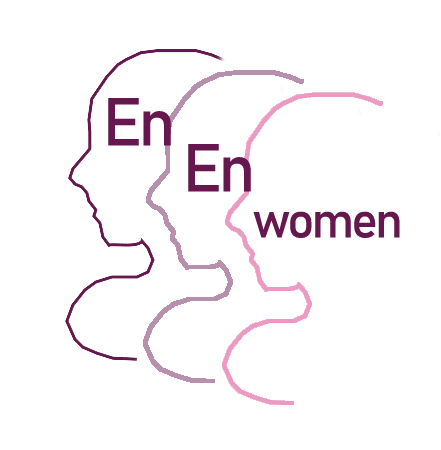Citizens, equality, rights and values
25 April 2023
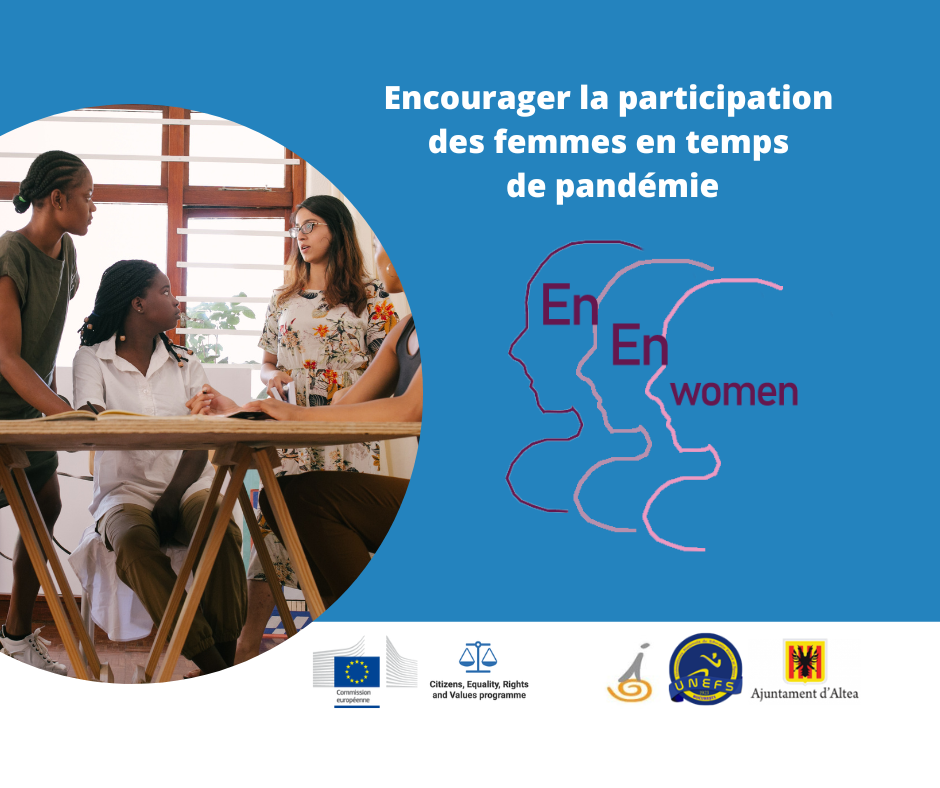
Encouraging women's participation in times of pandemic
15 April 2023
On 15 April 2023, the Jean Monnet Association brought together thirty people to work on this project at the Maison Jean Monnet.
The aim of the event was to understand and share certain opinions and experiences on women's issues in the post-pandemic crisis of COVID-19. The AJM invited three experts to talk about women's perceptions, in particular of gender-based violence, and women's personal and professional lives during and after the pandemic. The final point of our debate was to draw comparisons with national policies against gender-based violence and to find sustainable ways of resolving these situations in European countries.
During the event, the AJM invited three experts focusing on women's issues.
- Marie-Laure CHARLES, CEO of the defence and security industry in France and abroad, President and founder of the Rotary e-Club Paris International, Defence correspondent for the town of Neuilly-sur-Seine.
- Danielle GIRONDIN, President of the Association d'Intégration de la Citoyenneté Génération II, Chevalier de l'Ordre National du Mérite, Director of the CAF de l'Essonne and the Comité du Bassin de la Seine Normandie, President of RD-M Consulting Energy
- Marina MONACO, expert advisor to the European Trade Union Confederation, member of the Jean Monnet Association Council
Monica RADU, Vice-President of the Jean Monnet Association, moderated the debate.
Marina MONACO began by outlining the EU's work on behalf of women. The pandemic has highlighted many hidden situations (domestic violence, violence against migrants). The role of lobbyists has been increased due to their links and knowledge of the situation on the ground. Marina MONACO pointed out that women face a number of challenges. They are more likely than men to lose their jobs, to fall into poverty and social exclusion. They were also in the front line against Covid-19, because of their high rate of employment in care work. These jobs are hard and notoriously low-paid.
Danielle GIRONDIN then presented her association: Génération II, which focuses on violence in society and tries to establish links between people who have problems with the French administration and institutions. She stressed that we need to develop a deconstructive perception of our current societies. In her view, we need to be more aware of violence against women, not only in the public arena but also in the private sphere. The latter increased considerably throughout covid-19's forties. Génération II was not closed during the quarantine. The association held many meetings via Zoom and WhatsApp and took care to alert the authorities in order to put an end to this violence.
Marie-Laure CHARLES presents the Rotary Club's achievements during the pandemic. She is also involved with local representatives in the town of Neuilly. The Rotary Club collected and distributed food and acted as an intermediary for people in difficulty. As a former lecturer, she spoke about violence against women and children, a major priority for the Rotary Club.
Following Marie-Laure CHARLES' speech, Marina MONACO said that the most problematic point was that women and men had never paid attention to the minimum social base guaranteed by the EU. Women need to know their rights, in particular to achieve equal pay, which is really difficult to achieve. Today, there is a pay gap of 27 % between women and men in certain sectors.
The second problem is that a woman who works and has to bring up her children at the same time is not well regarded by society. To avoid this, men and husbands should take their responsibilities and bring up their children too, and spend the time that their wives have spent with their children. Marina MONACO took two examples of how EU Member States (Italy and Spain respectively) have dealt with violence against women throughout the pandemic. In Italy, for example, a violent husband found guilty of harassment must leave the marital home. Then the woman is safe and the threat is repelled. In Spain, the criminal penalty for sexual harassment has been extended.
The debate led to a number of conclusions. The first of these is aimed at reducing violence against women. The group of experts suggested that a violent spouse should be removed from the marital home. If marriages break down because of violence by the husband, women have the right to financial redress, state support to find a new job and childcare. We also need to improve police training and raise awareness of gender-based violence. Create a specific space to talk about gender-based violence and provide affordable shelter for women.
The round table also discussed gender equality. Firstly, the issue of childcare leave/holidays is shared equally between the two parents. As far as education is concerned, the panel proposed putting more female figures in schools. At the very least, masculinity and responsibility within the couple need to be redefined.
The round table made two distinctions between personal and professional life. In terms of professional life, the panel argued that women should stop self-censoring in terms of studies and employment. Another proposal was made to make EU rights better known to citizens. For working life, the panel called for the creation of a listening unit in every European company or company located in Europe.
On the subject of personal life, the panel proposed the creation of compulsory training for parents or couples wishing to have children. In addition, sex education with compulsory classes should be introduced at secondary school level. For young people, the discussion panel proposed creating a course on violence against young people and adolescents. This could take the form of role-playing or theatre, with children playing both roles, the harasser and the victim. At the very least, personal, cultural and artistic expression should be improved at school to prevent this kind of behaviour.
